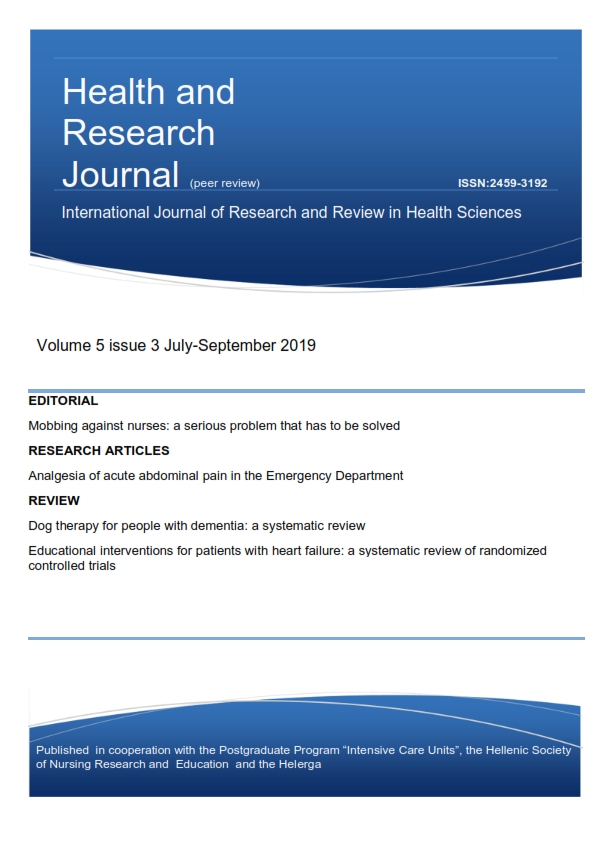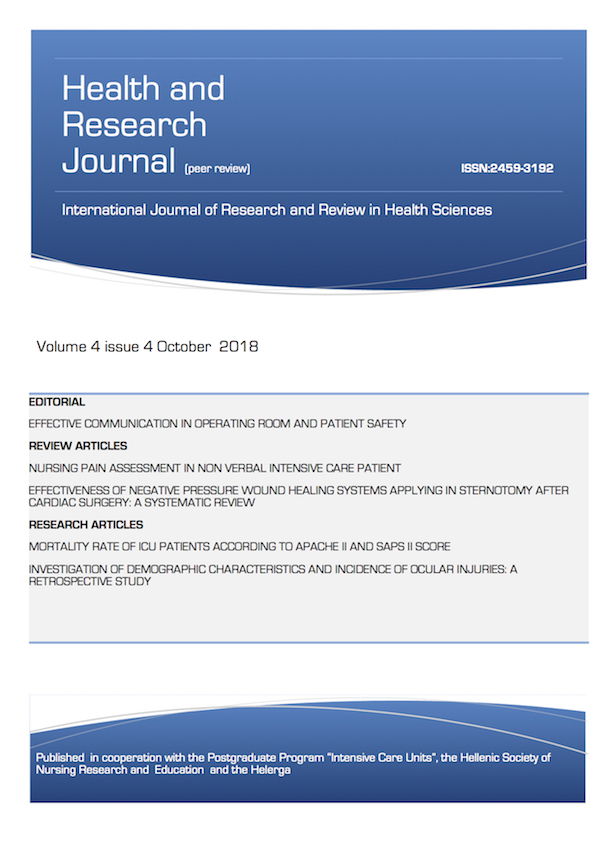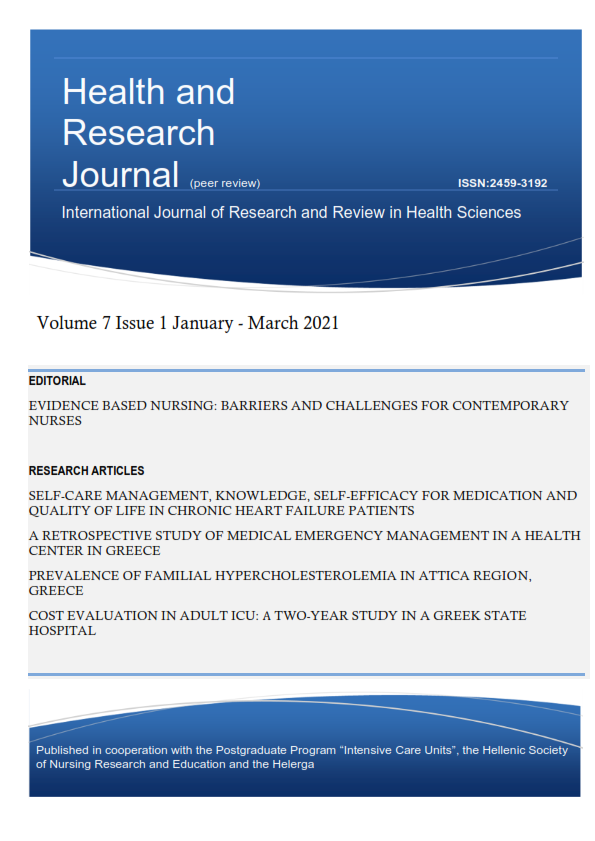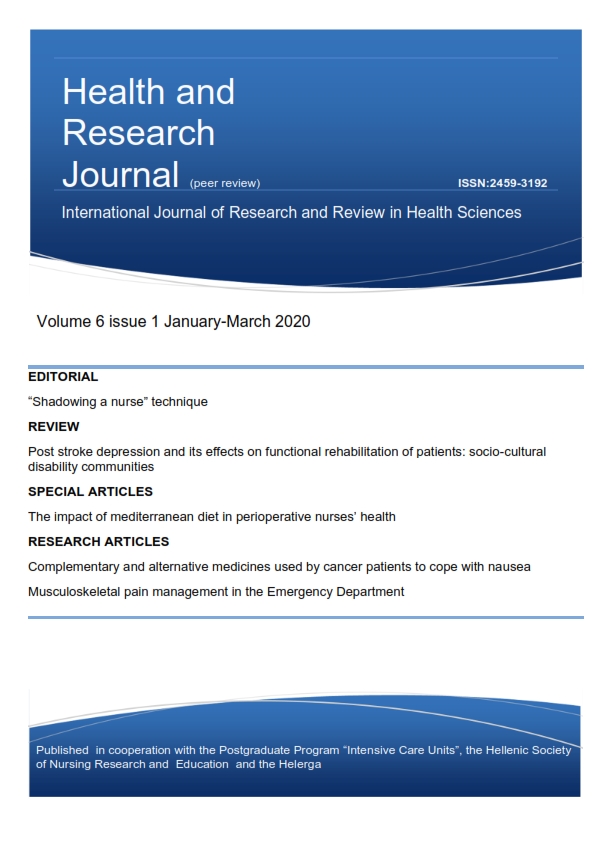Administration of ascorbic acid in the treatment of septic shock
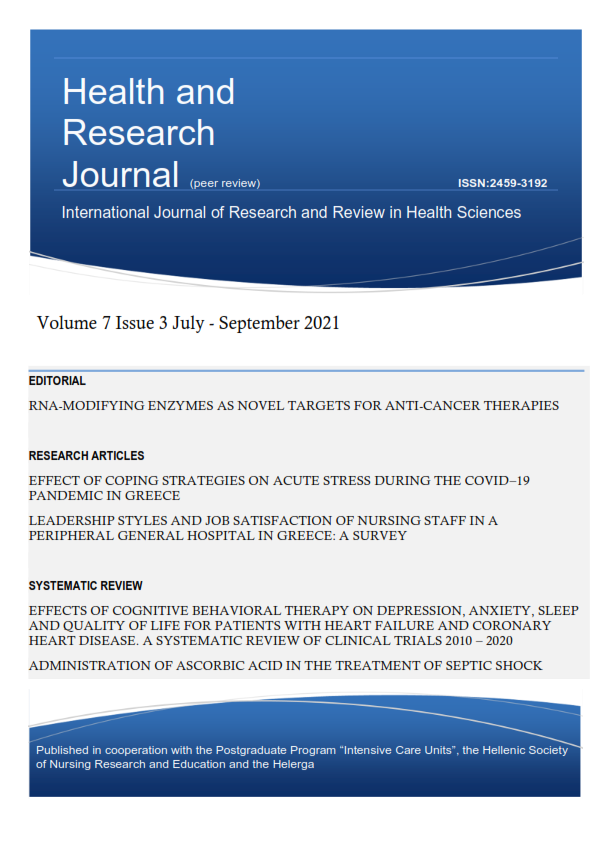
Abstract
Introduction: Septic shock is a common condition encountered in the intensive care unit. Sepsis is the leading cause of death with mortality ranging from 35-50%. Several factors are involved in the increasing incidence of sepsis including age, immunosuppression and antibiotic resistance. Gram+ or Gram- infections are considered leading causes of sepsis. Septic shock prognosis is significantly affected by early treatment. The hospitalization of the patient in the intensive care unit is particularly important as it is essential to support vital functions due to the complications of the shock.
Aim: To investigate the action of ascorbic acid in the treatment of septic shock and the benefits of its administration.
Method-Material: Randomized trials were searched in CENTRAL, EMBASE and PubMed databases. The total number of studies included was 6. The Cochrane Risk of Bias Tool Review Manager Revman 5.3 was used to control the studies. Τhe criteria for the inclusion of patients were: age more specifically over 18 years old, patients accepted to intensive care unit with septic shock, patients with septic shock who received ascorbic acid randomized studies and cohort studies and articles in English with a time limit from 2008 to the first semester of 2020.
Results: The results of the studies showed that patients with septicemia and septic shock have shown beneficial effects of ascorbic acid alone or in combination with corticosteroids and thiamine in the prevention of progressive organ dysfunction and in the reduction in mortality and severity of severe sepsis. Also, there was a reduced inflammatory response observed in septic shock and attenuated levels of circulatory injury biomarker.
Conclusions: Ascorbic acid has beneficial properties in septic shock and various studies have highlighted the importance of the combination of ascorbic acid and other vitamins and trace elements.
Article Details
- How to Cite
-
Stamouli, A., Marvaki, C., Vasilopoulos, G., & Kapadochos, T. (2021). Administration of ascorbic acid in the treatment of septic shock. Health & Research Journal, 7(3), 142–149. https://doi.org/10.12681/healthresj.27573
- Section
- Systematic Reviews
Copyright notice:
Authors retain copyright of their work and grant the Health and Research Journal the right of first publication.
License:
Articles are published under the Creative Commons Attribution 4.0 International License (CC BY 4.0). This license permits use, sharing, adaptation, distribution, and reproduction in any medium or format, including for commercial purposes, provided that appropriate credit is given to the author(s) and the original publication in this journal, a link to the license is provided, and any changes are indicated.
Attribution requirement:
Any reuse must include the article citation and DOI (where available), and indicate if changes were made.



